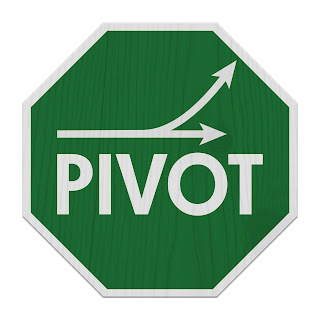I don’t know about all of you, but if I hear the word “pivot” one more time during this pandemic, I might lose my mind.
During the pandemic, many of us in the fields of youth and family development have had to toss our well-planned programs, curricula, staffing plans, and pedagogical practices out the window and improvise new strategies so that young people and families continue to learn and feel valued amidst the most challenging and complex social conditions of our lifetimes. This is why many argue that developmental evaluation is needed now more than ever.
What is developmental evaluation?
Developmental evaluation (DE) is an approach that helps “social innovators” find innovative solutions in uncertain and complex environments through rapid feedback on issues that unfold through the implementation of a program. It is best suited for situations when it is impossible to know all the challenges or situations a program might face in the future -- you know, like during a global pandemic...
Here is one example of how DE was used in an Extension parent program designed for family members and parents of youth participating in our 4-H STEAM Clubs, a program designed to support youth and families coming together to make a plan for higher education.
We initially co-designed the program so that parents would literally come together in the same programmatic space with their children to collaboratively work on an educational plan. But the team learned from program meeting notes and informal conversations with families and community leaders that these parents were feeling overburdened trying to support their children with virtual learning. They were concerned about learning loss, they had less time (and mental capacity) to engage in activities with their children, and felt overwhelmed trying to support their children during this pandemic. As a response, instead of bringing parents together through traditional programming, we distributed “family packets” with notepads and calendars that had parenting tips and words of encouragement. We are now preparing to implement a parent program via “WhatsApp” sending weekly parenting tips and conversation starters on parenting issues using the app and on their own time.
Youth programs always need to innovate
And while the pandemic is perhaps the most conspicuous example of a complex or changing social condition that affects programs’ strategies or resources, community-based youth programs are frequently thrown for loops to which they must adapt and, well, pivot.
Funding might change. A tragedy in the community might occur. New technology might be introduced. Youth and families might move. Youth workers and other stakeholders might simply co-discover more effective and responsive strategies to employ and should not be beholden to a strict set of strategies.
Because of the inevitability of complexity and change, youth programs are always in need of an approach that helps them discover innovative solutions to program design and implementation.
Developmental evaluation (DE) might be just what youth programs need, but this approach to evaluation is rarely used in youth programs. I would like to see that change.
How can it be done?
DE has great potential to help youth programs innovatively support youth amidst changing and complex environments. And it is an approach worth investigating further. Here are some things to keep in mind when considering DE for your organization or program:
- It is best suited when it is impossible to know all the challenges or situations a program might face in the future.
- It requires more involvement from program staff in co-designing evaluation tools and interpreting data.
- The evaluator’s primary function is to learn about the team's processes, make observations, facilitate data-based reflection and learning so that staff can adapt accordingly.
- Program staff must be open to data that may surprise them and be willing to adapt.
- Ambiguity and uncertainty is inevitable in youth programming; embrace it.
Developmental evaluation can help youth programs and organizations identify new and innovative practices and support programmatic decision-making amidst change and uncertainty. In short, it gives you data that supports you as you pivoooooot.
You are welcome to comment on this blog post. We encourage civil discourse, including spirited disagreement. We will delete comments that contain profanity, pornography or hate speech--any remarks that attack or demean people because of their sex, race, ethnic group, etc.--as well as spam.

Developmental evaluation sounds familiar as if it is a process that I already use in my programming without naming it. I would love to explore it more and learn how to formally bring it in to my program leadership and extension teaching.
ReplyDelete